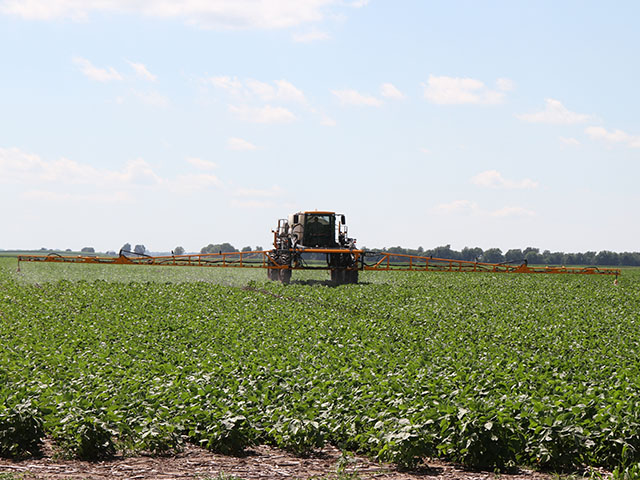No Reversal on Dicamba
Judges Deny BASF's Motion, Dicamba Registrations Remain Vacated
ROCKVILLE, Md. (DTN) -- Late on Thursday, June 25, a panel of judges on the Ninth Circuit denied a motion by BASF to stay and recall their June 3 mandate vacating three dicamba registrations, including BASF's Engenia herbicide.
The move puts dicamba registrants back where they started the month: with three of four over-the-top dicamba herbicides no longer federally registered for use.
For now, farmers and commercial applicators may still apply any existing stocks of the herbicides in their possession as of June 3, according to an EPA cancellation order issued June 8. They must follow the former labels, as well as any dicamba-specific state rules in place, including some cutoff dates that have already taken effect.
P[L1] D[0x0] M[300x250] OOP[F] ADUNIT[] T[]
But beyond 2020, the future of the three dicamba registrations, Bayer's XtendiMax, BASF's Engenia and Corteva's FeXapan, remain uncertain.
BASF had argued that the judges should recall their mandate for a number of reasons. First, the company claims it was not aware that its Engenia herbicide was at stake in the case before the June 3 decision, and did not get sufficient opportunity to defend its product to the court.
Second, when the judges issued their decision to vacate the registrations on June 3, they took the unusual step of issuing the mandate -- which gave the decision the force of law -- immediately afterward. Federal rules of appellate procedure typically require a period of seven days between a decision and a mandate, Brigit Rollins, a staff attorney for the National Agricultural Law Center, explained on a webinar given this week on the topic. And if one party is a federal agency, that required time can stretch to 51 days, Rollins noted.
However, the Ninth Circuit has its own local rules that allow three-judge panels to issue a mandate on the same day if the decision is issued under "exceptional circumstances." BASF argued this was not the case for the judges' decision to vacate the registrations.
The court disagreed. It issued a single statement, with no accompanying opinion, that BASF's motion was denied.
See more on this case here: https://www.dtnpf.com/… and here: https://www.dtnpf.com/….
Emily Unglesbee can be reached at Emily.unglesbee@dtn.com
Follow her on Twitter @Emily_unglesbee
(c) Copyright 2020 DTN, LLC. All rights reserved.






